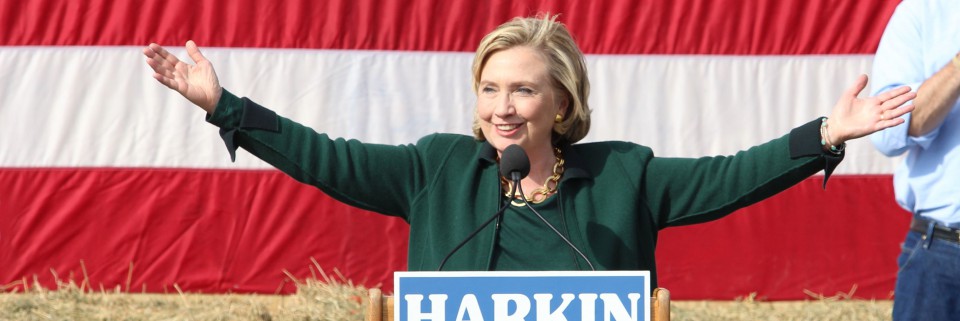Tags
ACA, Chris Kelly, General Assembly, Medicaid, missouri, Obamacare

Representative Chris Kelly (D) in the House chamber in Jefferson City. [file photo]
Submitted by Representative Chris Kelly (D):
Transforming Healthcare Will Support Rural Hospitals and Missouri’s Economy
The most important issue facing the 2014 Missouri Legislature is whether to expand state health care coverage to working people who earn up to 138% of the federal poverty level. I say “working people” because the vast majority of the 226,525 uninsured Missourians who fall between 19% of the federal poverty level–the current limit for Medicaid coverage in Missouri–and 138% are employed at low wage jobs.
The Affordable Care Act (ACA) provides that, if states extend Medicaid coverage to include those uninsured in this population, the federal government will pay 100% of the Medicaid cost through 2016, then gradually decrease to 90% in 2020 and beyond.
Originally the ACA made Medicaid expansion mandatory. The additional money that would have come to states to cover uninsured people would also have replaced current federal payments to hospitals, primarily subsidized payments for uncompensated care. The United States Supreme Court ruled that the ACA itself (with its individual mandate) is constitutional but Congress could not force states to expand Medicaid eligibility. The negative financial consequence of this decision was negligible in states that chose to expand Medicaid to cover the working poor, but devastating to hospitals in states like Missouri, which, thus far, have refused to accept federal money. Missouri’s hospitals will lose federal uncompensated care subsidies and, without state Medicaid expansion, will see no increase in Medicaid reimbursement.
This revenue shortfall will have a tragic economic effect on rural hospitals throughout Missouri. These institutions are often the economic anchors of their communities. In my own community of Columbia, the failure of the state legislature to act will cost Columbia’s hospitals about $30 million. Our hospitals will be hurt, but will survive. The same cannot be said for many smaller, rural institutions. Our state legislature must do everything in its power to strengthen rather than weaken Missouri’s rural hospitals.
A series of objective evaluations made by various corporations and organizations have reached substantially the same conclusions:
1. The cost to our hospitals and ultimately to our economy of not expanding Missouri health care coverage will be $3.5 billion by 2019.
2. Expansion would have a direct positive effect on the state General Revenue budget of at least $40 million per year, not including any positive effect resulting from increased secondary economic activity.
3. The St. Louis Regional Chamber of Commerce (RCGA) forecasts that the ten-year impact of not expanding coverage will be equivalent to eliminating more than 5,000 jobs.
4. Expanding Medicaid in Missouri will result in an additional 20,000 jobs and increase employment income by more than $5 billion. (RCGA) Many of these new jobs will be in south and southeastern Missouri, an area of our state where poverty is greater and hospitals are most threatened.
5. Without Medicaid expansion, the payment for uncompensated care will be reduced by about $11 billion by 2019, resulting in substantial cost shifts in the business community. (RCGA)
Many politicians who oppose health care expansion are fond of saying that the government should behave more like a business. I agree with them. For that reason it is worthwhile to evaluate the judgment of Missouri’s business community. The two largest business groups, the Missouri Chamber of Commerce and Industry and Associated Industries of Missouri both support expansion as do a growing list of local chambers in Albany, Blue Springs, Bolivar, Branson, California, Camdenton, Cape Girardeau, Carrollton, Chillicothe, Clinton, Columbia, Eldon, Grandview, Hannibal, Hermann, Independence, Kansas City, Kirksville, Lake of the Ozarks, Lee’s Summit, Marshall, Maryland Heights, Mount Vernon, Nevada, New Madrid, Phelps County, Platte County, Raymore, Ripley County, Sedalia, Springfield, St. Charles, Ste. Genevieve, St. Joseph, St. Louis, Troy, Washington, Warrensburg and West Plains. The question that the St. Louis Regional Chamber asks the Legislature is: “The Missouri business community is united in support of Medicaid transformation. Are you with us?”
Although opponents have never presented any objective analysis to rebut that of the business community, many suggest that somehow expansion will cost our General Revenue money and ultimately erode support for education. I have the privilege of serving on the House Interim Committee on Medicaid Transformation. One of the things we have learned is that if one objectively evaluates all the costs and benefits of expansion, the inescapable conclusion is that expansion actually saves money in the General Revenue Budget. For example, today the state pays 100% of the medical cost of prisoners. If we were to expand coverage, the federal government would pay 100% of the cost for prisoners who are admitted to hospitals. That number averages about 150 hospital nights per month. Many similar efficiencies exist. The bottom line is that expansion makes more, not less, General Revenue available for education. If opponents disagree they have an obligation to present the facts to support their supposition.
I have not addressed any of the human issues: Is it better for working people and their children to have health care? Is it better to treat with preventative care rather than emergency room care?
Even if one’s analysis is completely economic and ignores all of the human issues, healthcare transformation is vital for the well being of our state. I encourage you to speak with your state legislator about this issue.
Chris Kelly
State Representative
45th District – Columbia
